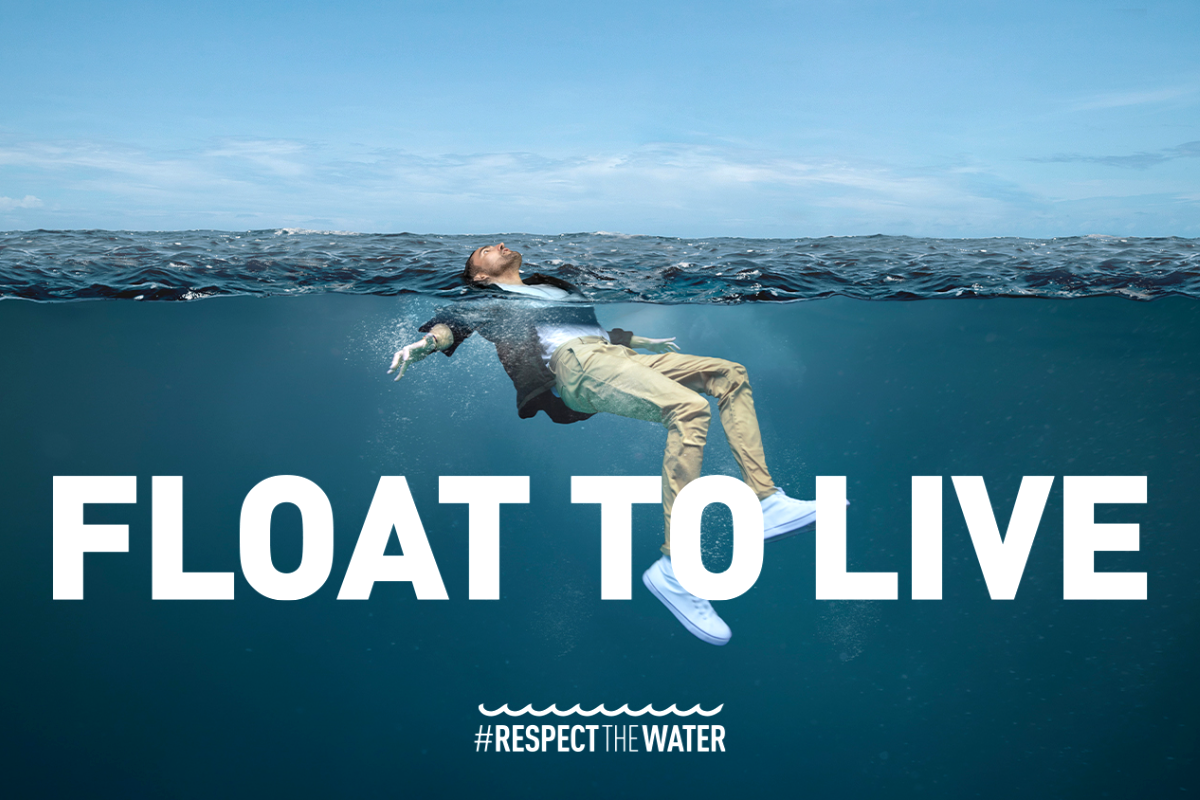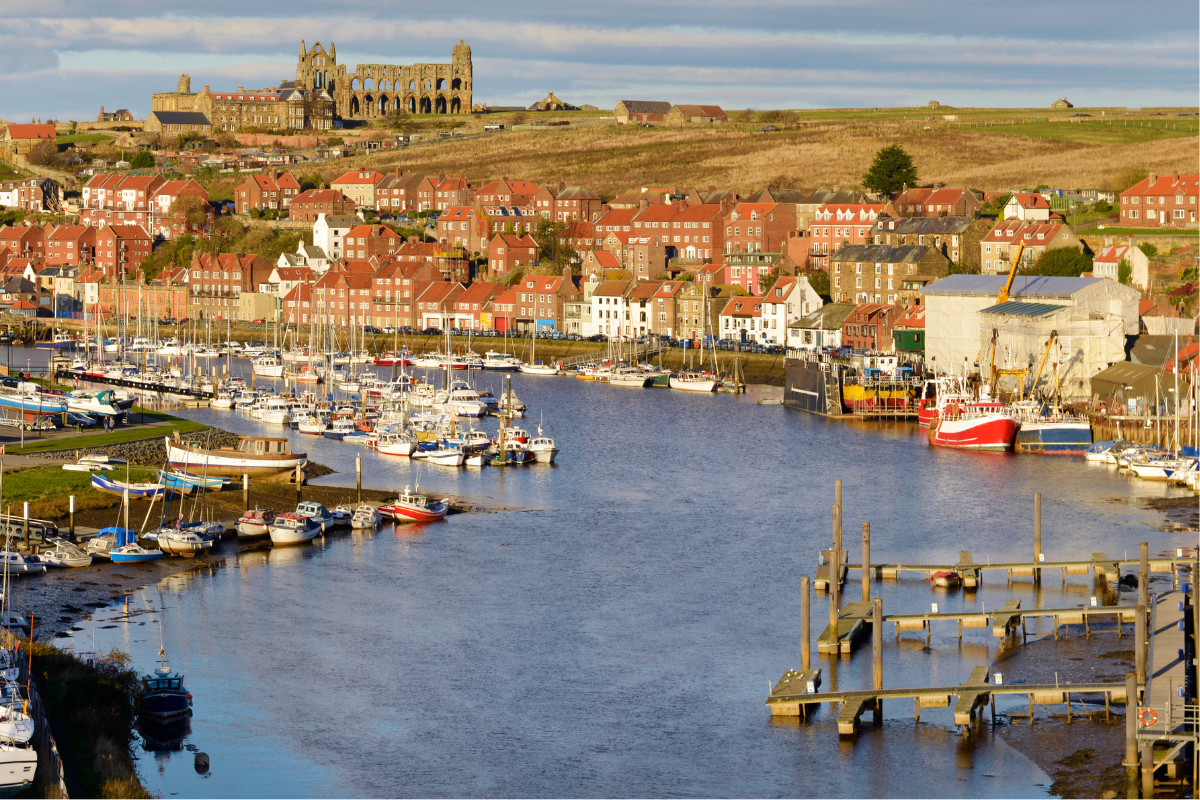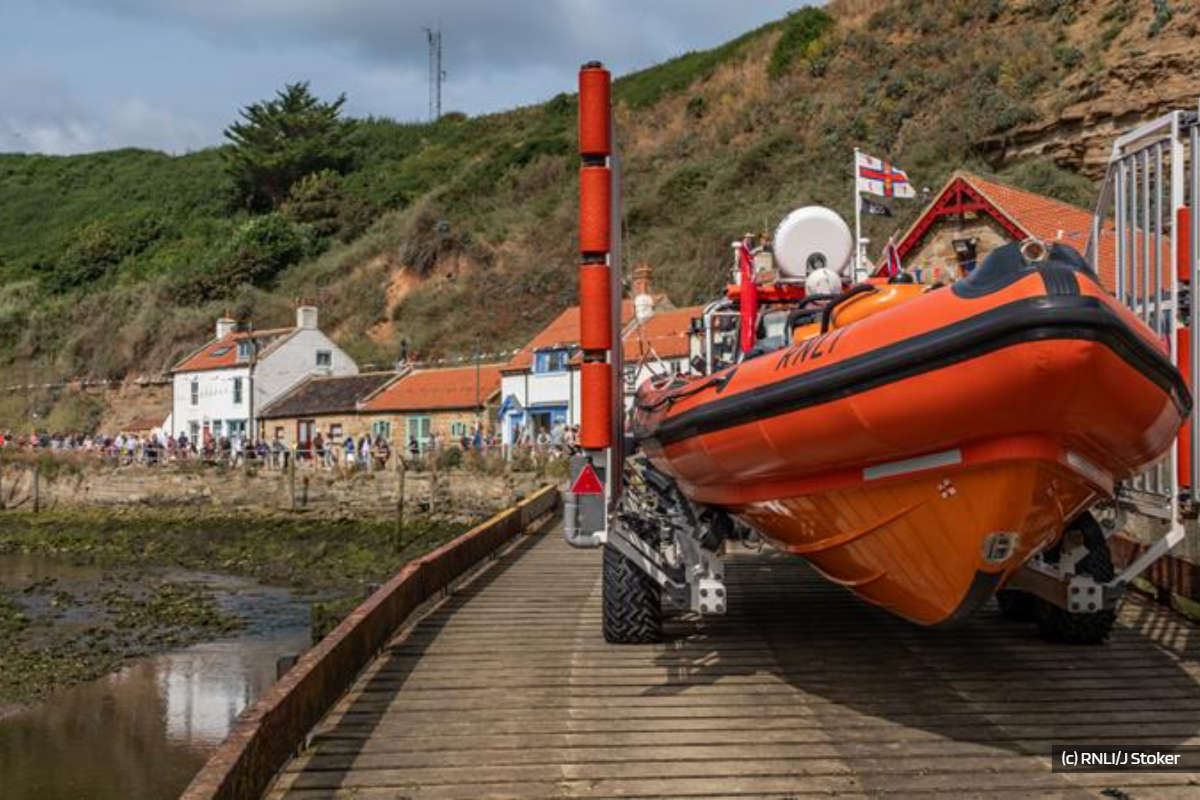
With the bank holiday weekend and half term arriving, the Royal National Lifeboat Institution is reminding those heading to the coast about the importance of their 'Float to Live' strategy.
The charity is highlighting this key advice as many people plan trips to the seaside, but may not know the best course of action if they get into difficulty in the water.
Liam Fayle-Parr, RNLI Water Safety Delivery Support officer for the North and East, explained that the RNLI encourages everyone, all year round, who finds themselves struggling in the water to "fight their instinct to thrash around". Instead, the advice is to "lean back in the water with their ears submerged," relax, and try to breathe normally.
"We really encourage everyone if they find themselves in difficulty in the water, that they float on their back.
That they take a moment. Fight the instinct to thrash around, lean back in the water. A really important point about the float to live position is that your ears have submerged, and if the water's cold, that won't feel very nice, but that's the position that you have to get into. It's when your ears are submerged, that your chest comes up, and that your mouth and nose are outta the water, and that's the most efficient.
Position to float in. Some people need to move their arms and legs in a sort of sculling motion a little bit to support that floating position on your back. And some people's legs sink. Some people's legs float. That doesn't matter. What matters is that we lean back in the water. We take control of our breathing potentially wait for any cold water shock symptoms to pass before thinking about our next move, whether that's shouting for help or swimming to safety."
The urgency of this advice is underscored by the fact that many people who get into trouble never planned to enter the water at all. According to research released by the charity, over 40% of people who experience difficulty in the water never intended to get wet. The same research indicates that nationally, 85% of people plan to visit the coast this summer, yet a significant 76% would not think to try floating as their first action if they found themselves struggling. This figure is similar for the North and East of England, where 82% plan coastal visits, but 78% would not consider floating first.
Despite the recent run of warm weather, Liam says that the cold sea water temperatures remain a significant risk,
"At this time of year when the air temperature can feel quite warm, the sea temperature hasn't really caught up yet. It can catch people off guard. Cold water shock can happen in, , any water that's below 15 degrees. And the average UK water temperature year round is 12 degrees.
And it's only really for a very brief spell in the middle of the summer that we sometimes go above, above 15. So it can always happen all year round. And cold water shock really can affect people's ability to swim. It can cause someone to gasp so. Remembering that float to live advice really could be the key to, saving yourself in a dangerous situation."
Liam adds that practising the Float to Live position is strongly encouraged. The RNLI actively recommends that people spend a few minutes practising this skill whenever they are in a swimming pool.
"We really. Actively encourage that people do practice when, whenever they're in a swimming pool. Give a few minutes to practising the float to live position. Lean back in the water. Float as effortless effortlessly as you can, and especially if you have children or grandchildren and you're going to the swimming pool with them.
Spend some time ensuring that they know how to relax and lie back on their water back, lie back in the water. So if they ever did need that lifesaving skill they know that they've practised it recently
This includes ensuring children and grandchildren know how to relax and lie back in the water. Knowing you have recently practised this potentially lifesaving skill can be vital in an emergency."
On the Yorkshire Coast, while there are beaches with RNLI lifeguards on duty at key times, there remains a substantial amount of coastline where this level of support is not present, making these self-rescue skills particularly important.
"On the RNLI website, we have a list of the RNLI LIFEGUARDED beaches, and we'd recommend that anyone going to the beach does choose a lifeguarded beach and swims between the red and yellow flags.
We don't want to scare people away from using the water because if we use the water safely it's very good for us. But we would encourage that everyone does treat it with respect and uses it as safely as possible."
Details about the RNLI Lifeguarded Beach cover can be found at https://rnli.org/find-my-nearest/lifeguarded-beaches
For those who see someone else struggling in the water, the advice from the RNLI is to call 999 or 112 and ask for the Coastguard. They should also tell the person in the water to relax and float on their back, and if possible, throw something buoyant to help them stay afloat.
The RNLI reports that while their lifeboat crews and lifeguards rescue hundreds at the coast annually, tragically, around 140 people accidentally lose their lives in UK and Irish coastal waters each year. Remembering, practising, and sharing the float technique is seen as a way to help save more lives.




 North Yorkshire Chosen For Trailblazer Programme
North Yorkshire Chosen For Trailblazer Programme
 Whitby Rescue For Stricken Canoeist
Whitby Rescue For Stricken Canoeist
 Seadogs Big Kick Off As Scarborough Athletic Go To West Midlands
Seadogs Big Kick Off As Scarborough Athletic Go To West Midlands
 Whitby Town Start NPL Premier Campaign in Cumbria
Whitby Town Start NPL Premier Campaign in Cumbria
 Bridlington Town Start NPL East Season
Bridlington Town Start NPL East Season
 Yorkshire Coast Cricket Action
Yorkshire Coast Cricket Action
 Bridlington Actor Launches Comedy Film Shot On Yorkshire Coast
Bridlington Actor Launches Comedy Film Shot On Yorkshire Coast
 Hornsea Dancing For Town's Lifesavers
Hornsea Dancing For Town's Lifesavers
 Police Looking For Wanted Man in Scarborough
Police Looking For Wanted Man in Scarborough
 Scarborough Town Council Vote For Equal Mayoral Billing
Scarborough Town Council Vote For Equal Mayoral Billing
 Scarborough Charity Needs More Help
Scarborough Charity Needs More Help
 Staithes & Runswick Prepare For Lifeboat Weekend
Staithes & Runswick Prepare For Lifeboat Weekend









Comments
Add a comment